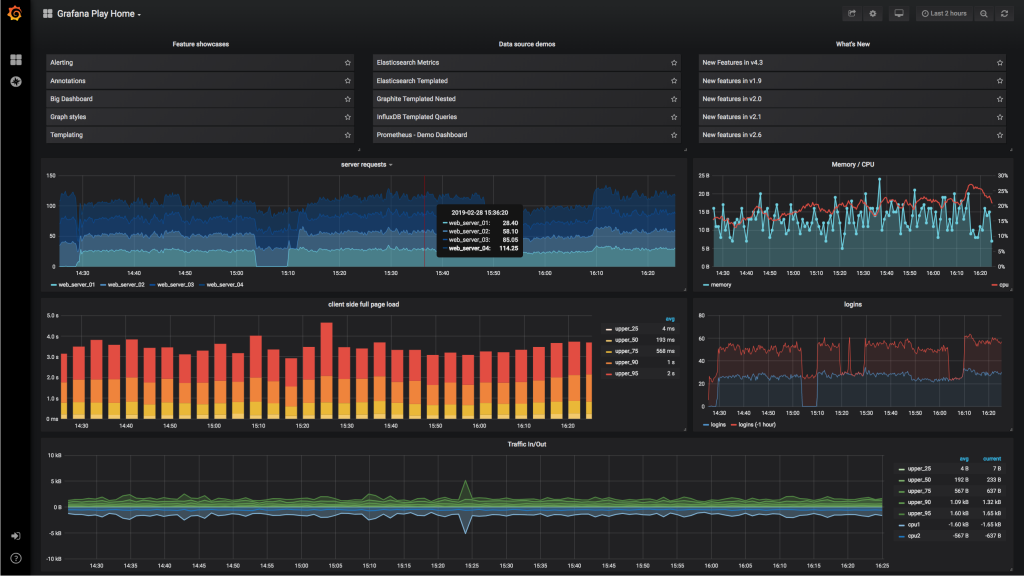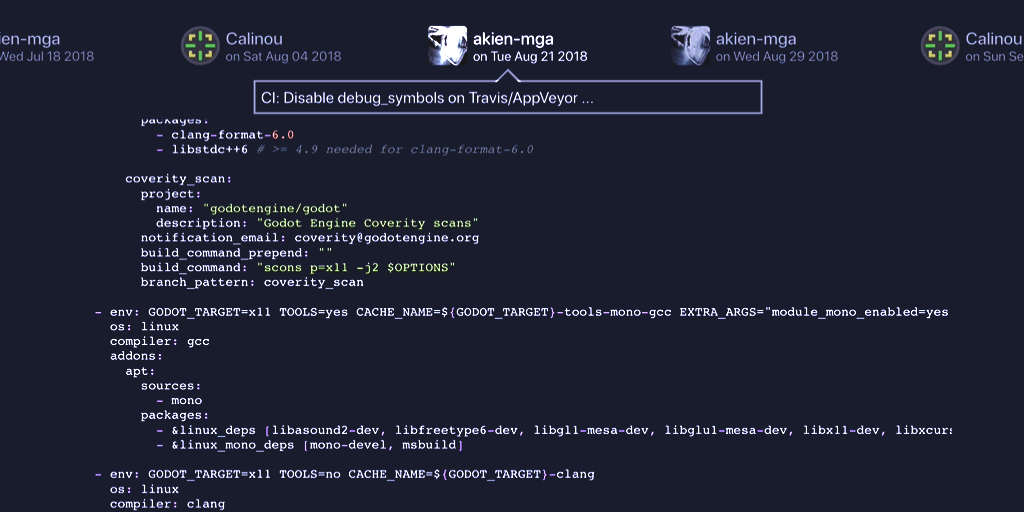Release Radar · February 2019
We’re sharing new and exciting releases from world-changing technologies to weekend side projects in the February 2019 edition of Release Radar.

Welcome to the February 2019 edition of Release Radar, where we share new and exciting releases—from world-changing technologies to weekend side projects. Most importantly, they’re all projects shipped by you.
Homebrew 2.0
Homebrew is described as “the missing package manager” for macOS. And as of version 2.0, Homebrew now helps you install packages on Linux and Windows Subsystem for Linux (WSL). Now, instead of figuring out how to build and install a more recent version of Git than your system’s default, you can run brew install git instead. Along with official support for platforms other than macOS, Homebrew 2.0 no longer builds from source for core package formulae, and it even automatically cleans up after itself to save disk space.
Did you know? Homebrew’s terminology is inspired by brewing beer. Packages are formulae, installing a binary is pouring a bottle, and third-party package repositories are taps. Cheers 🍻
Buildbot 2.0
Buildbot is a continuous integration framework written in Python. It can monitor changes to your version control system, schedule jobs, and even report on the results. In version 2.0, Buildbot is cleaner and runs more efficiently than ever: old APIs that have been superseded were removed, undocumented APIs were made private, and tons of bugs have been fixed. Along with some housekeeping, the Buildbot project has also ended support for Python 2, allowing the project to remove older compatibility code.
Gutenberg 5.0
Gutenberg is the rich text editor used by WordPress. Version 5.0 adds new blocks for Kindle content and RSS feeds and provides the option to customize the focal point for large cover photos. This release also introduces general improvements made to the UI, along with a long list of bug fixes.

Learn more about Gutenberg 5.0
Did you know? The GitHub Blog recently moved from Jekyll to WordPress. The GitHub Content Team uses Gutenberg every day.
Jetpack 7.0
Speaking of WordPress, Jetpack also had a big release in February. Jetpack is an all-in-one plugin for WordPress that adds related posts, site stats, automatic social media sharing, and more. Jetpack 7.0 adds a Gutenberg block to embed GIFs from Giphy, a faster way of copying posts, and deprecates sharing to Google+.
Hugo Academic 4.0
Academic is a project that helps you put together a website with Markdown and Hugo. While it’s geared towards educators and researches, anyone can use it—and it comes with a variety of widgets and themes to help share your work quickly. Version 4.0 makes it much easier to feature the people behind the content with new user profiles, contact links, and widgets.
ClusterFuzz 1.0
Google open sourced ClusterFuzz, a fuzzing tool that does it all. Not only can it bombard your software with inputs, but it also finds regressions, deduplicates failures, and files bugs. Prior to its initial open source release, ClusterFuzz has found thousands of bugs in Chromium and other open source projects.
Learn more about ClusterFuzz 1.0
Grafana 6.0
Grafana creates visualizations and alerts using monitoring data from sources like Graphite, InfluxDB, and Prometheus. The latest release packs in a lot of new features with a new query-based Explore view, and a redesigned way to edit panels. For even more customization, Grafana has added the option to create new panels and data sources with React. There’s so much more to check out, so be sure to read the release notes.

Git History
We’re changing things up this month to highlight a project outside of the major-version milestone mindset. Git History caught our eye with a beautiful way to tour the history of a file in a GitHub repo. You can use Git History to flip back and forth through commits, plus there’s nothing to download and install: point Git History to a repository file URL to start traveling through time. Great Scott!

That’s just a handful of releases you shipped last month—keep them coming! If you’ve got a release that should be on our radar, send us a note.
Written by
Related posts

Highlights from Git 2.50
The open source Git project just released Git 2.50. Here is GitHub’s look at some of the most interesting features and changes introduced since last time.

4 trends shaping open source funding—and what they mean for maintainers
Get insights on the latest trends from GitHub experts while catching up on these exciting new projects.

Shine a spotlight on your open source project
Celebrate #MaintainerMonth with two big opportunities to showcase your open source project at GitHub Universe and WeAreDevelopers World Congress. Applications are open. Don’t miss out!